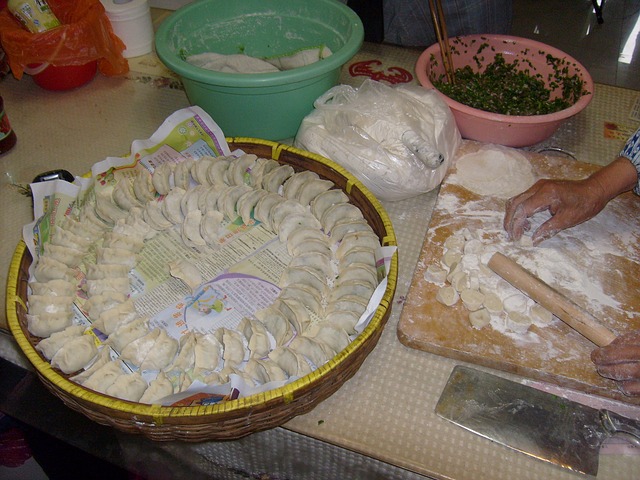Matthew Regis
Introduction
Food symbolism plays an important role in the oldest and most important festival in China known to most people in the west as Lunar New Year or Chinese New Year (CNY). On the eve of CNY, families will gather together and eat many foods and on the surface of it, it may seem like a good excuse to stuff yourself with food, but many of the foods would have been specially picked for such an occasion as most of them will hold symbolic value. Chinese families see Chinese New Year as a year to start fresh, it's with this in mind that many of the foods will be picked to help bring in what they want for this new year such as fortune, prosperity, good health, etc.
Below is a brief list of food and the symbolic meanings of foods eaten during Chinese New Year.
- Fish (whole) - The word 魚 (yú), meaning "fish", has the same pronunciation as the word 餘, which is "remain or surplus", 'having leftovers of money', an increase in prosperity
Pork (猪肉; zhūròu) - strength, wealth, abundant blessing
Whole Chicken (鸡肉; jīròu) - prosperity, togetherness of the family, joy (note: chicken with its head, tail and feet symbolizes completeness)
Jiaozi- Dumplings (jiǎozi, 饺子) - wealth (the shape of the jiaozi dumplings is that of a yuanbao ingot, also the word jiǎozi shares the same pronunciation with 角子 (jiǎozi) that is a small jiao coin used in old times. Other meanings: togetherness, heavenly blessing
Glutinous Rice Cake (年糕; nián'gāo) - safety, good fortune and 'sweeten' the new year
Fa Gao (发糕; fāgāo) the steamed "Prosperity Cake"; the sound "fa" means either "to raise/generate" or "be prosperous"
Turnip cake (萝卜糕; luóbo gāo) - good omen.
Mullet roe (烏魚子; wū yúzǐ) - Mullet roe symbolizes multiple children, multiple grandchildren, and more blessings.
Buddha Jumps Over the Wall, also known as Buddha's Temptation (Chinese: 佛跳牆; pinyin: fó tiào qiáng). A very lucky New Year dish.

